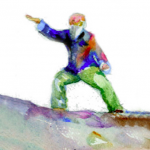This is a guest post by Celia Grand of the Riverview Foundation. Many thanks to Celia for sharing this information!
compassion fatigue (dictionary.com)
fatigue, emotional distress, or apathy resulting from the constant demands of caring for others or from constant appeals from charities: compassion fatigue experienced by doctors and nurses.
Many of us work in high stress jobs, have too many personal responsibilities and little time to balance ourselves. Stress is a force that interferes with mental clarity, stability of emotions and physical ease.
In addition to life stress, as caregivers we are susceptible to compassion fatigue. We take in volumes of overwhelming emotional material. Our bodies, mind and spirit strategize to cope with all that we hold outside of our conscious awareness. For example: our adrenal glands may pump out extra adrenaline to get us through the day while cortisol rushes through our bodies to try to bring it back into homeostasis. This taxing of our adrenals causes problems with sleep or may lead us to over eat to keep our energy going. Exercising may not energize us the way it once did. Frequently, when we get time off, we find ourselves too exhausted to enjoy ourselves or we become ill.
Tai Chi is a gentle form of martial arts that involves a series of flowing, graceful, slow-motion movements designed to harmonize the circulation of “chi” in and around the body. Chi, is vital life force, the intrinsic energy in the body, as well as a term used to describe an energy flow that pervades the universe and sustains the living beings within it.
Tai Chi is also known as “meditation in motion”. Tai Chi is more than a set of movement patterns; Tai Chi is an embodiment. Awareness is focused inward, upon the self. The movements are slow, smooth, and circular – originating from the center of the body. Each movement involves the entire  body in a coordinated, synchronized fashion. Movements are low-impact and put minimal stress on muscles and joints. The risk of injury is very low while increasing flexibility, agility, strength and endurance. The practice of Tai Chi can facilitate relaxation that synchronizes the musculoskeletal and nervous systems. It helps to develop concentration and coordination, builds immunity and promotes a sense of well being.
body in a coordinated, synchronized fashion. Movements are low-impact and put minimal stress on muscles and joints. The risk of injury is very low while increasing flexibility, agility, strength and endurance. The practice of Tai Chi can facilitate relaxation that synchronizes the musculoskeletal and nervous systems. It helps to develop concentration and coordination, builds immunity and promotes a sense of well being.
The health benefits of Tai Chi are many. On the personal level, a state of good health is achieved by stable chi flow that balances the mind, body and spirit. When the mind is balanced, Chi flows. When Chi flows, the body relaxes. As the body relaxes, the muscles and ligaments strengthen, flexibility increases, blood pressure stabilizes and overall health improves. Emotions balance, enabling an increased ability to deal with the myriad of life demands with mental clarity and concentration. As a result, Tai Chi promotes inner peace and a more positive life view.
“Redirecting Compassion Fatigue” is a Tai Chi class for those in the helping professions. The class will be held Friday, May 16, 2014 at 9:30 am to 11 am at Riverview Foundation, 146 Ocean Street, South Portland, Maine. The cost for the class is $20. To register or for more information on this class or upcoming classes, contact Celia Grand [email protected] or 207-650-8884. For more information about Tai Chi or Martial Arts, go to RiverviewFoundation.org


0 Comments